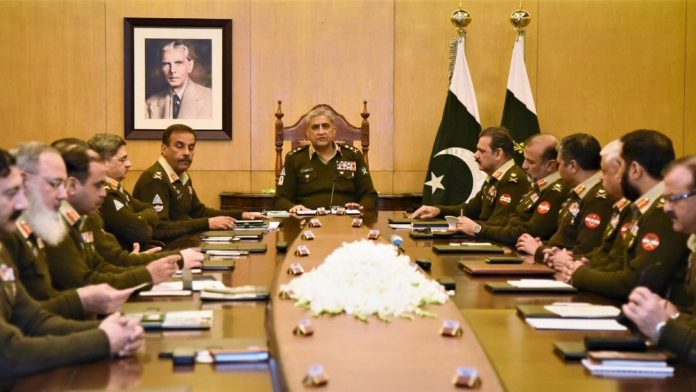NITIN PAI
 If India’s political and public reaction is excessive, it might compel the Pakistani military leadership to escalate in an attempt to save face.
If India’s political and public reaction is excessive, it might compel the Pakistani military leadership to escalate in an attempt to save face.
The optimum Indian military response to the Jaish-e-Mohammed’s attack on Indian security forces at Pulwama would be one that falls between two thresholds: high enough to impose costs on the Pakistani military-jihadi complex, but not so high that it would escalate to a higher level of conflict. The Narendra Modi government’s use of air power to strike at the Jaish-e-Mohammed infrastructure in Balakot Tuesday satisfies the first of these conditions. It remains to be seen if it satisfies the second too.
Meanwhile, the IAF strikes that took out targets 80km across the Line of Control put paid to the Pakistani argument that thanks to its nuclear arsenal, India didn’t really have a feasible military option against its proxy war through militants and terrorists.
Some analysts — the late K. Subrahmanyam among them — have countered this, pointing out that there is room for India to use conventional forces to punish sub-conventional attacks by Pakistan. This, however, was not put to test, for India’s political leaders from Atal Bihari Vajpayee to Manmohan Singh calculated that a restraint was a better option. It would be wrong to attribute that policy of restraint to pusillanimity: rather, it was based on the previous governments’ political appreciation of both India’s domestic economic situation and the international environment.
It may well be that the Pakistani military establishment began to believe the stories it told others, and confused India’s strategic restraint for helplessness in the face of cross-border terrorism. Also, despite the international environment having shifted decisively away from any sympathy for jihadi terrorism, Pakistan’s military leadership seems to have believed that China would step in to protect it from punishment. Perhaps because it was getting away with allowing groups such as the Jaish-e-Mohammed (JeM) and the Lashkar-e-Taiba (LeT) to openly operate in Pakistan, it thought that it could get away with cross-border attacks too.
The Balakot operation proved them wrong. The Pakistani armed forces could not prevent a conventional response despite being on alert for more than a week. Worse, from the Pakistani perspective, the international response was largely supportive of India. Only Beijing mumbled some words of support.
So far, Pakistan’s response to the Balakot operation has been incoherent. In his first statementsannouncing the attack, the Pakistani military spokesperson downplayed the impact, claiming that Pakistani aircraft foiled the attack, which in any case took place close to the Line of Control. In all likelihood, this was to hide the embarrassing fact that the Indian strikes were deeper and caused significant damage to a key militant base.
Subsequent statements by Prime Minister Imran Khan, announcing that Pakistan would respond to Indian aggression, appear inconsistent with the army’s version that the Indian strikes did no real damage. How these dynamics play out in Pakistan over the next few days will determine to what extent things could escalate.
For its part, New Delhi made it clear that the air strikes hit neither the Pakistani military targets nor did it hurt civilians. Further, it signalled that India desired no further escalation. But this last bit is a two-way street: for escalation requires only Pakistan to desire it.
New Delhi would do well to match its desire to avoid escalation with suitable actions. As I wrote earlier this month, “The Pakistani army might be more likely to start a war if its image takes too hard a beating in the eyes of the Pakistani people, than if it suffers physical damage outside the limelight.” The action at Balakot has already done damage to the Pakistani military’s image in the eyes of its own people. If India’s political and public reaction is excessive, it might compel the military leadership to escalate in an attempt to save face.
Yet, what will Pakistan strike against? Would it employ air power to strike at Indian military targets? That would be too disproportionate an escalation. If not this, then what?
What might be the other forms in which Pakistan might react? In the immediate term, the military-jihadi complex might approve of more terrorist attacks in Jammu & Kashmir and elsewhere. The likelihood of this is circumscribed by the fact that it would seriously jeopardise Pakistan’s international position, which it can’t afford at this time. There could be more of the usual “heavy firing” across the Line of Control, the impact of which is merely tactical.
Just because cross-border militancy and terrorism are no longer as feasible as they used to be, it does not follow that Pakistan will abandon its proxy war. Rather, it will be on the lookout for new ways to prosecute its old war. That is what we must be watchful about.
No comments:
Post a Comment